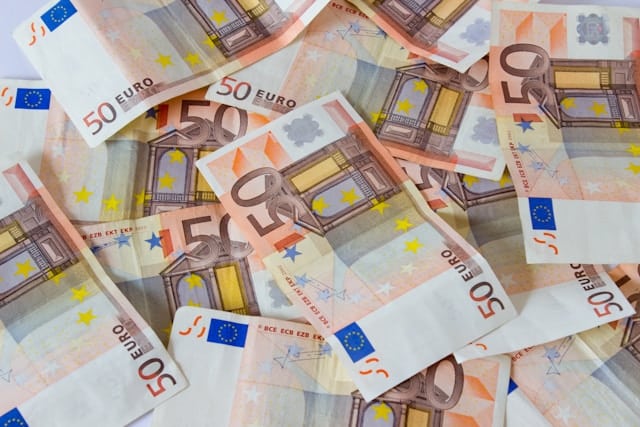Understanding different currencies is crucial when traveling or conducting business in Europe. While many countries use the euro (EUR), others maintain their national currencies. Whether you’re heading on a city break in Paris, a ski trip in Switzerland, or expanding your business into Eastern Europe, knowing the right currency can save you money and hassle.
In this guide, we’ll explore the Eurozone, the countries that use their own currencies, exchange rate tips, and how to manage money while in Europe.
The Euro: The Common Currency of Europe
What is the Euro?
The euro (EUR) is the official currency of 20 out of the 27 European Union (EU) member states. These countries collectively form the Eurozone, meaning they share a single currency to facilitate trade, travel, and economic stability.
Countries That Use the Euro
The following EU countries have adopted the euro:
- Austria
- Belgium
- Croatia
- Cyprus
- Estonia
- Finland
- France
- Germany
- Greece
- Ireland
- Italy
- Latvia
- Lithuania
- Luxembourg
- Malta
- Netherlands
- Portugal
- Slovakia
- Slovenia
- Spain
Some non-EU territories and microstates, including Andorra, Monaco, San Marino, and Vatican City, also use the euro as their official currency.
European Countries That Do Not Use the Euro
While the euro is widely used, several European countries maintain their own national currencies. Here are a few notable ones:
United Kingdom (British Pound)
The UK, having left the EU, continues to use the British pound (GBP). If you’re visiting Europe from the UK, it’s important to exchange pounds for the relevant local currency before traveling or use a multi-currency card.
Bulgaria (Bulgarian Lev)
Bulgaria, an EU member, uses the Bulgarian lev (BGN) instead of the euro. The country has committed to adopting the euro in the future but has yet to set a definitive date.
Romania (Romanian Leu)
Romania also remains outside the Eurozone, using the Romanian leu (RON). While there are discussions about transitioning to the euro, the Romanian government has yet to finalize plans.
Switzerland (Swiss Franc)
Switzerland, not an EU member, has maintained the Swiss franc (CHF) as its official currency. It is one of the most stable and valuable currencies globally, often used as a financial safe haven.
For more details on each of these currencies, check out our dedicated resource pages for: the British Pound, Bulgarian Lev, Romanian Leu, and Swiss Franc.
Currency Exchange Tips for UK Travelers
Should You Exchange Money Before You Travel?
Exchanging money in advance can sometimes provide better rates, but withdrawing cash at local ATMs often offers competitive exchange rates. Be mindful of foreign transaction fees and always choose to be charged in the local currency rather than GBP when using a card abroad.
Using Cards and Contactless Payments
Most European countries widely accept credit and debit cards, particularly Visa and Mastercard. Contactless payments are common, but it’s always a good idea to carry some cash, especially in rural areas or for small purchases.
Understanding Exchange Rates
Exchange rates fluctuate daily, so checking rates before your trip helps you get the best value. Currency conversion apps and online tools can assist with real-time rates. For more insights, visit the Beyond Borders currency blog.
Avoid Airport Exchanges
Currency exchange kiosks at airports tend to offer unfavorable rates. Instead, use online exchange services or withdraw money at an ATM upon arrival.
Use Fee-Free Travel Cards
Consider using a travel-friendly debit or credit card that offers zero foreign transaction fees. Some UK banks and fintech providers, like Revolut and Monzo, provide excellent options for international spending.
Keep an Eye on Exchange Fees
Some ATMs charge high withdrawal fees. Always check the fee structure before withdrawing cash, and use ATMs from reputable banks when possible.
Dealing with Multiple Currencies in Business
Handling Payments Across Borders
For UK businesses operating in Europe, understanding currency differences is essential for managing transactions, pricing, and profit margins. Using a multi-currency business account can streamline operations and reduce conversion fees.
Hedging Against Currency Fluctuations
Exchange rates can impact the cost of doing business. Companies often use financial hedging strategies to protect against unfavorable currency movements.
Choosing the Right Payment Solutions
Many UK businesses working with European clients opt for payment gateways that support multiple currencies, ensuring seamless transactions without unnecessary conversion fees.
Common Questions About European Currencies
1. Can I use the euro in non-Eurozone countries?
Some non-Eurozone countries, like Switzerland and parts of Eastern Europe, may accept euros in tourist areas, but it’s always best to use the local currency for better rates.
2. Do I need cash when traveling in Europe?
While cards are widely accepted, some smaller shops, rural areas, and transportation services may require cash. It’s advisable to carry a small amount for emergencies.
3. How can I get the best exchange rate?
Avoid airport exchanges, use fee-free travel cards, and withdraw cash from reputable ATMs. Monitoring exchange rates before your trip can also help you exchange money at a favorable rate.
4. Why doesn’t every EU country use the euro?
Some EU countries, like Bulgaria and Romania, are in transition but have yet to meet the full economic and policy criteria for euro adoption. Others, like Denmark, have opted out entirely.
5. What is the most stable currency in Europe?
The Swiss franc (CHF) is known for its stability due to Switzerland’s strong economy and banking system, making it a popular currency for investors.
Navigating Europe’s diverse currencies is easier with the right knowledge. Whether you’re traveling for leisure or conducting business, staying informed helps you make the most of your money.
